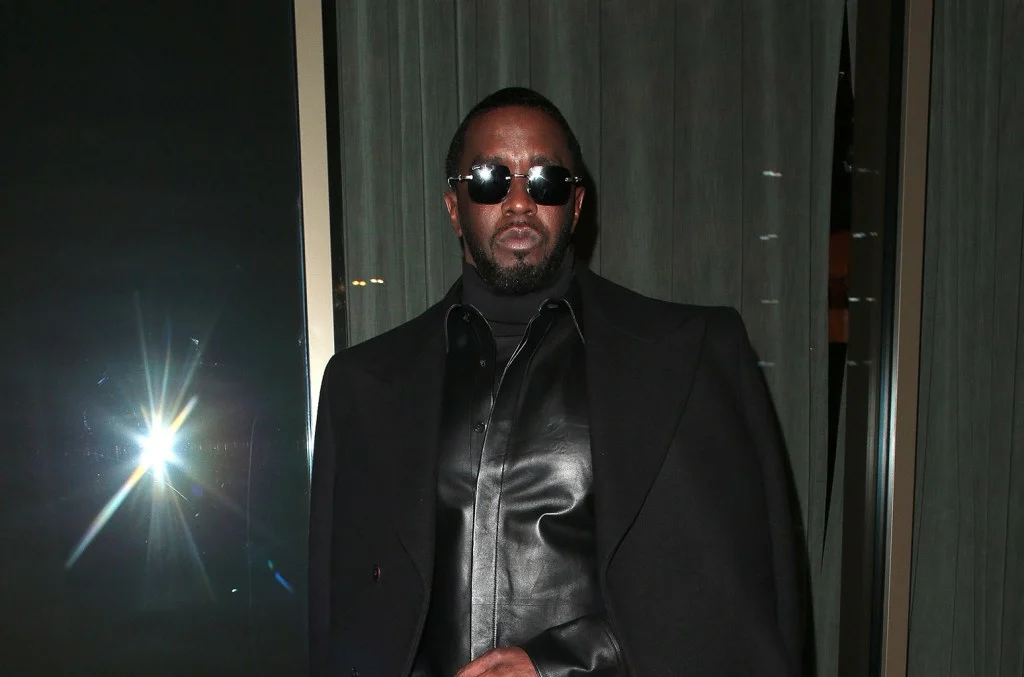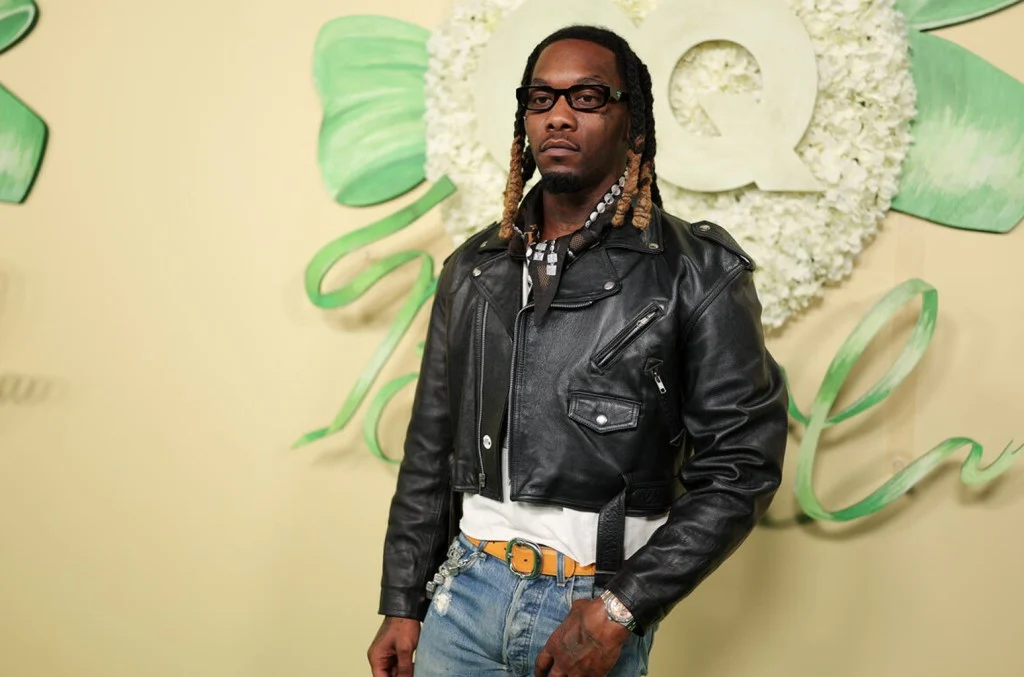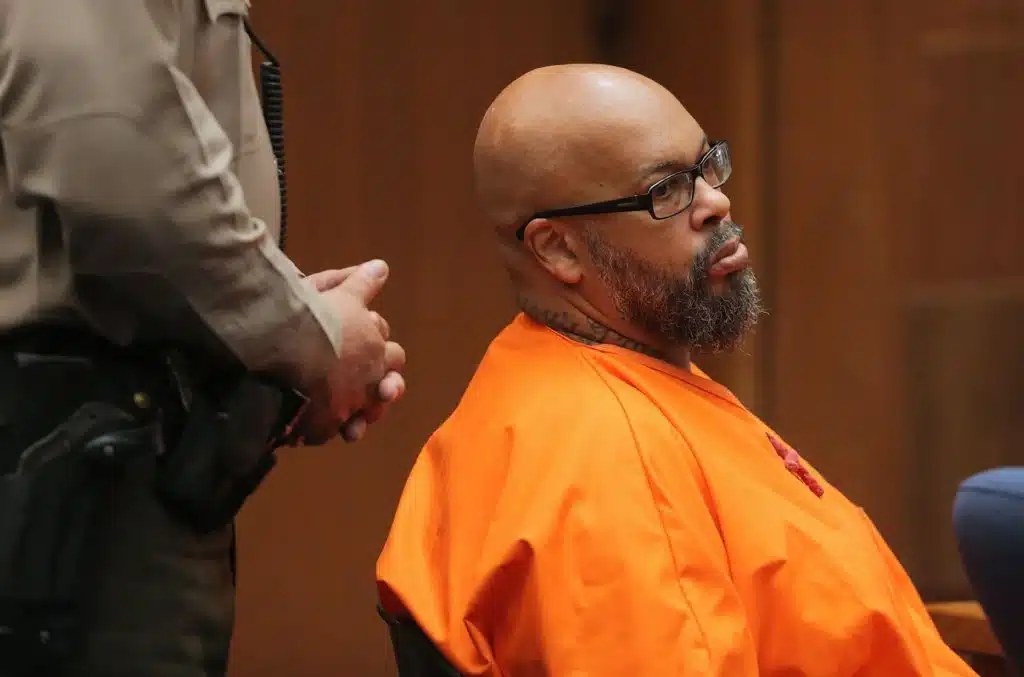nsfs
Page: 8
One of Cassie Ventura’s friends testified Wednesday that Sean “Diddy” Combs dangled her over a 17th-floor balcony, telling jurors that the incident left her with “night terrors and paranoia.”
On the witness stand during the fourth week of the music mogul’s sex-trafficking trial, Bryana Bongolan said she had been at Ventura’s apartment in 2016 when Combs stormed in unexpectedly, according to CNN. She told the jurors that the star dangled her over a balcony, then threw her into furniture.
The attack left her with injuries both physical and psychological, Bongolan said: “I have night terrors and paranoia and scream in my sleep at times.”
Bongolan is one of many witnesses already called by prosecutors, who claim Combs ran a criminal enterprise aimed at coercing Ventura and other women into participating in drug-fueled sex shows known as “freak-offs.” Defense attorneys have said the sex was consensual and that Combs merely operated a legitimate music business.
The alleged balcony incident has long been one of the flashiest accusations against Diddy. It was referenced in Ventura’s civil lawsuit that sparked the rapper’s downfall, and prosecutors mentioned it in the indictment and in other pre-trial court filings. Bongolan herself described it in detail in a civil lawsuit she filed last year.
On the witness stand Wednesday, she described it for jurors, saying it had left her with “a bruise on the back of my leg and back and neck pain.”
Bongolan also testified that she once saw Diddy throw a knife at Ventura, and about another time that she saw Cassie with a black eye. She also told jurors about an alleged incident at a photoshoot in which Combs threatened her life.
“He came up really close to my face and said something around the lines of, ‘I’m the devil and I could kill you,’” Bongolan said.
Combs was indicted in September, charged with running a sprawling criminal operation aimed at facilitating the freak-offs — elaborate events in which Combs and others allegedly coerced Ventura and other victims into having sex with escorts while he watched and masturbated. Prosecutors also say the star and his associates used violence, money and blackmail to keep victims silent and under his control. (Read Billboard‘s full explainer of the case against Diddy here.)
Once one of the music industry’s most powerful men, Combs is accused of racketeering conspiracy (a so-called RICO charge), sex trafficking and violating a federal prostitution statute. If convicted on all of the charges, he faces a potential sentence of life in prison.
The trial, which has already featured testimony from Ventura herself, another unnamed victim named Mia and numerous other witnesses, is expected to run until early July. Bongolan is expected to continue testifying in the afternoon.
50 Cent promised to let Donald Trump know what Diddy has said about him in the past, and he followed up on exactly that when posting a pair of clips on Monday (June 2) featuring Combs condemning the president.
“See Trump don’t like s–t like this buddy, you run your mouth to much,” 50 wrote in one caption.
The first video finds Sean Combs in conversation with Charlamagne Tha God, talking about a potential race war if the now twice-impeached president were in office. “If Trump gets elected, I really do believe in my heart there’ll be a race war,” Diddy said in the clip.
Another video shows Diddy condemning Trump on REVOLT, saying: “White men like Trump need to be banished.”
Fans hopped into the comments, chiming in about 50 looking to kill any chance of a pardon for Diddy by Trump, who recently pardoned YoungBoy Never Broke Again.
“We will have BREAKING NEWS….from the White House to address by noon tomorrow…I am sure you just took that man’s last hope for sure,” one fan wrote.
The G-Unit mogul has been relentless in his trolling of Combs, as 50 even posted an edited image of himself rocking a “Free Diddy” shirt on social media.
Combs remains on trial in New York for federal sex trafficking and racketeering charges. During Tuesday’s 15th day of testimony, a hotel worker alleged Diddy paid them $100,000 to make sure the video of Combs assaulting Cassie never got out, per ABC News.
Last week, Trump was asked about a potential Diddy pardon during an Oval Office briefing and said he’d consider it, but would have to take a look at the case.
“I haven’t spoken to him in years,” Trump said. “He used to really like me a lot. I think when I ran for politics, that relationship busted up. … I would certainly look at the facts. If I think somebody was mistreated, whether they like me or don’t like me, it wouldn’t have any impact on me.”
Offset doesn’t seem too happy about Cardi B and New England Patriots wide receiver Stefon Diggs going public over the weekend. The new couple went viral when videos of a yacht party surfaced just as the NFL’s organized team activities were starting up, and while the team activities weren’t mandatory, Diggs’ absence was frowned upon […]
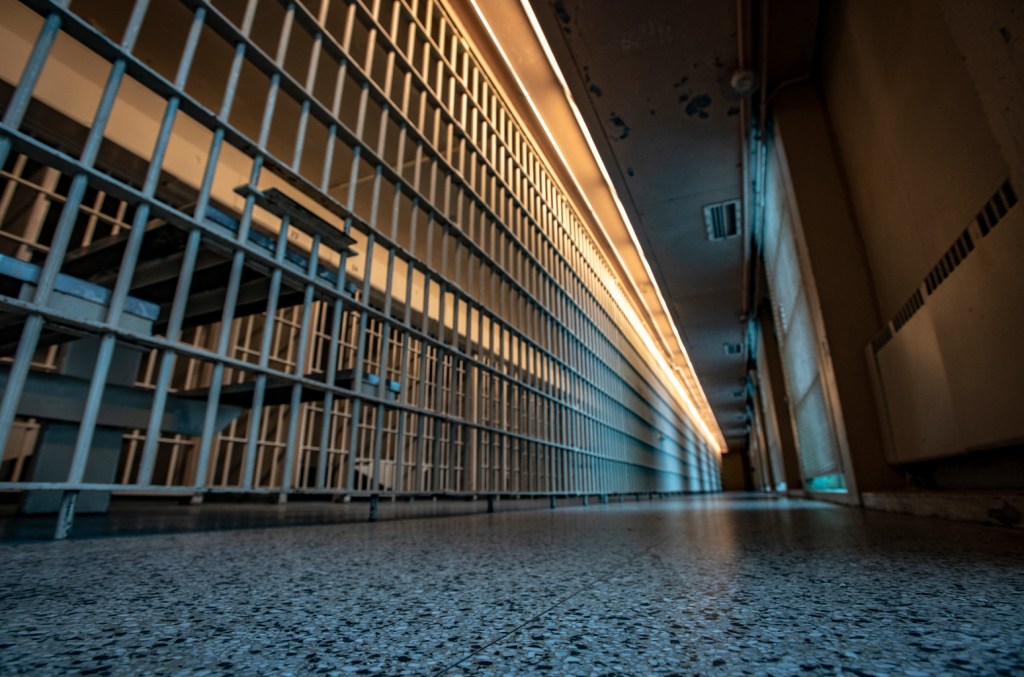
Antoine Massey is one of the two remaining inmates still on the run since allegedly breaking out of the Orleans Justice Center on May 16, and he may be looking for help from the president, as well as three rappers who have been entangled in the criminal justice system.
Explore
See latest videos, charts and news
See latest videos, charts and news
A video that appears to feature Massey surfaced on social media on Monday (June 2), in which the man pleads with Lil Wayne, Meek Mill, YoungBoy Never Broke Again and Donald Trump for assistance in his legal situation.
“Who I was in the past is not who I am today,” a man appearing to be Massey begins in the video. “So I’m asking, please for help. [NBA] YoungBoy, Meek Mill … People that been through the system that know it’s corrupt. Lil Wayne, Donald Trump, please, I’m asking for help … When I get back in custody, I’m asking y’all please to come and help me.”
He continued: “I’m letting y’all know I’m not a raper, man. I’m not none of that. None of that. I’m a good person. I am a father that want to be in my children’s life … I want to let the younger you know that going down the route of trying to be a street person is not the route.”
Neither the rappers nor Trump have responded to Massey’s video, which the Louisiana State Police has been made aware of.
According to Baton Rouge ABC affiliate WBRZ, Massey was arrested in March on charges of domestic abuse battery and vehicle theft, and that he was also wanted for suspicion of rape and kidnapping in St. Tammany Parrish. At the time of his escape, he had not entered a plea yet.
“If the individual depicted in the video is indeed Antoine Massey, we strongly urge him to come forward and turn himself in to the proper authorities,” said Orleans Parish Sheriff Susan Hutson in a statement. “Cooperating with law enforcement is in his best interest and may help avoid additional charges. It is important that justice is served appropriately and that due process is followed.”
This isn’t Massey’s first reported escape either. According to local CBS affiliate 4WWL, Massey and five others broke out of the Juvenile Justice Intervention Center in 2007. He also escaped from Morehouse Detention Center in 2019.
Orleans Justice Center maintenance worker Sterling Williams was reportedly arrested on felony charges for facilitating the May prison break. CBS affiliate KFVS12 in Cape Girardeau, Mo., reports that Williams claimed that Massey threatened to stab him if he didn’t take part in helping the escape. The Orleans Parish Sheriff’s Office also said the inmates’ jail break may have been helped by “defective locks,” the outlet reported.
Of the 10 fugitives, Massey and Derrick Groves are the final two inmates remaining at large. There’s a $50,000 reward being offered for information leading to their apprehension.
Billboard has reached out to the Orleans Police Department and the White House for comment.
Ronald Fenty, the father of Rihanna, has reportedly died at the age of 70.
Fenty passed away following a brief illness, according to Starcom Network News, a radio station based in Rihanna’s native Barbados. The official cause and exact date of death have not yet been disclosed. Sources told the outlet that he was surrounded by family at the time of his passing.
Billboard has reached out to Rihanna’s representatives for comment.
Explore
Explore
See latest videos, charts and news
See latest videos, charts and news
On Wednesday (May 28), Rihanna’s younger brother, Rajad Fenty, was photographed arriving at Cedars-Sinai Medical Center in Los Angeles. TMZ reports that the singer was also in the vehicle but was not visible in the photos.
Rihanna — who is currently expecting her third child with A$AP Rocky — had a complicated relationship with her father over the years. The two were estranged for a period before eventually making amends.
After Rihanna (born Robyn Rihanna Fenty) was assaulted by then-boyfriend Chris Brown in 2009, Fenty spoke publicly about the incident without her consent. In a 2011 interview with Vogue, the singer expressed her disappointment.
“You grow up with your father, you know him, you are a part of him, for goodness’ sakes!” she said at the time. “And then he does something so bizarre that I can’t begin to wrap my mind around it.”
In a 2012 interview with Oprah, Rihanna said she had repaired her relationship with her father, who she had described as being violent growing up. In 2019, however, she filed a lawsuit against him and his business partner, Moses Perkins, accusing them of attempting to profit off her name by launching a company called Fenty Entertainment. She alleged they misled investors by falsely claiming she was involved in the venture. Rihanna dropped the lawsuit shortly before it was set to go to trial in 2021, according to the BBC.
Fenty shared three children — Rihanna, Rajad and Rorrey — with his ex-wife, Monica Braithwaite. The couple divorced in 2002. The family was raised in Bridgetown, Barbados, where Rihanna lived until she moved to the U.S. at age 16. He also had three children from previous relationships: daughters Samantha and Kandy, and son Jamie, People reports.
Diddy is currently on trial in New York for sex trafficking and racketeering. While the trial is still in its early stages, President Donald Trump was asked about potentially pardoning the Bad Boy mogul, and Trump admitted it’s something he’d consider. Explore See latest videos, charts and news See latest videos, charts and news During […]
All products and services featured are independently chosen by editors. However, Billboard may receive a commission on orders placed through its retail links, and the retailer may receive certain auditable data for accounting purposes.
Interest rates are historically high — this is bad news if you carry a credit card balance, but if you’re saving money right now, interest rates can help you reach your goal even faster.
Explore
Explore
See latest videos, charts and news
See latest videos, charts and news
That’s why it’s important to be smart about where you stash your cash while you’re saving for something big, like a new piece of music equipment or studio space. A cash sweep program can be a great option for this money. It’s available when you need it, but earns way more than it would if it were sitting in a traditional bank account — or as crumpled twenties in a cash box (IYKYK). Here’s how to make sure your cash sweep program works for you — and why Robinhood Gold is a smart fit for whatever your financial strategy may be.
Not All Cash Sweep Programs Are Created Equal
A cash sweep program can offer more interest on your savings than a traditional savings account. But it’s important to compare your options. Some cash sweep programs require an account minimum, or else you might have to pay a fee. Others might make it tough to withdraw your money, or offer limited additional financial products. All of these barriers can make it tough to use your uninvested brokerage cash.
Robinhood, the investment and trading platform, offers Robinhood Gold, which provides a full suite of financial products you need, with the flexibility you require. And most importantly, it offers 4.5% APY on cash deposits — one of the highest interest rates available.
Interest That Adds Up
Interest rate matters because interest compounds, meaning that you earn interest on interest. Over time, that can help supercharge your savings. This is in addition to the interest you’re earning on your savings. You’ll get a boost from money you deposit, a direct deposit, wires, and even a Zelle or PayPal transfer.
Utilizing Robinhood Gold can help you know the money you earn — whether it’s from your day job, your gig work, or a combination of everything — is working as hard as you are.
Growing Your Money With Robinhood Gold
When it comes to your money, where you place it makes a huge difference. Investing can be great for longer-term goals, like finally buying a house or saving for retirement. But when you need money in the short term, it’s a good idea to park it somewhere it’s easily accessible. Utilizing a cash sweep program through Robinhood Gold allows you to keep your savings with other accounts you use, like for investing, so you have your money in one place.
Robinhood Gold differs from other cash sweep programs because the platform is also an investing app, with the flexibility you need to ensure your money is where it can grow the most. Beyond saving, you can also use Robinhood Gold to invest and even maximize your retirement goals with extra money from Robinhood Retirement — the only IRA with a boost on every eligible dollar. All of these tools can help you make the most of your money now, and for the future. Because, when you’re cobbling together gigs and saving for the next big dream, you need a savings solution as committed and creative as you are.
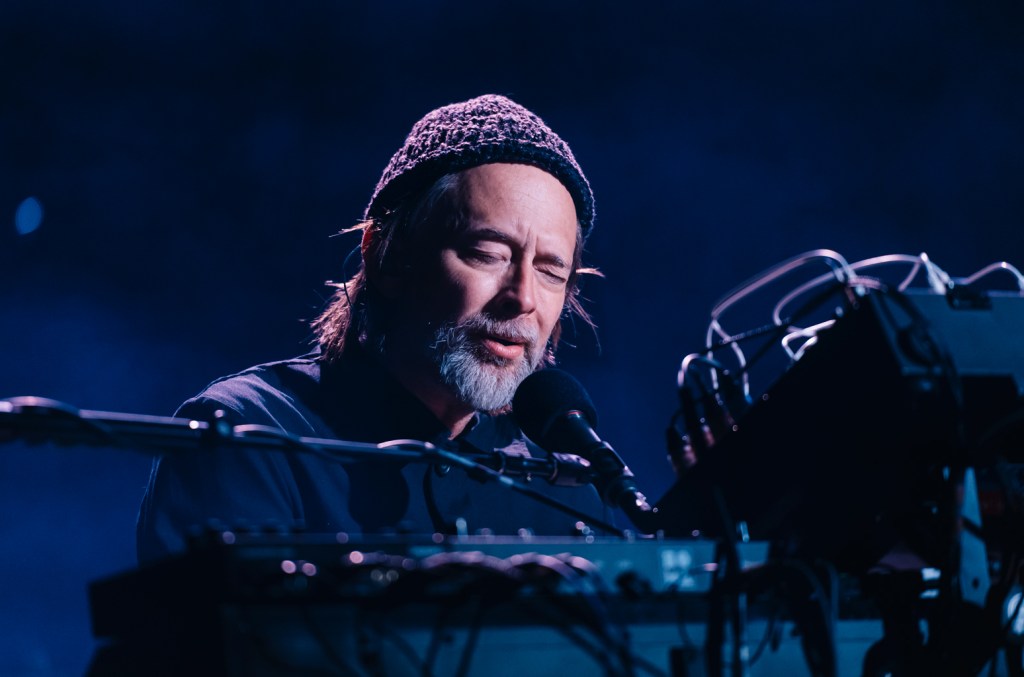
Thom Yorke is speaking out for the first time about a confrontation with an audience member at one of his gigs in Australia last year that the Radiohead singer said left him emotionally distraught. In a lengthy Instagram post on Friday morning (May 30), Yorke described his feelings about “some guy shouting at me from the dark last year” as he was preparing to sing the final song at his solo show in Melbourne.
After a man in the audience shouted comments about “Israeli genocide in Gaza” during the gig at the Sidney Meyer Music Bowl in October, Yorke stopped the show and challenged the person to come on stage and say it to his face before walking off in seeming disgust. In his Instagram post, Yorke said that moment didn’t really seem like the best one to “discuss the unfolding humanitarian catastrophe in Gaza.”
Afterwards, however, Yorke wrote that he “remained in shock that my supposed silence was somehow taken as complicity,” adding that he “struggled to find an adequate way to respond to this and to carry on with the rest of the shows on the tour. That silence, my attempt to show respect for all those who are suffering and those who have died, and to not trivialize it in a few words, has allowed other opportunistic groups to use intimidation and defamation to fill in the blanks, and I regret giving them this chance.”
While Yorke didn’t specify which comments he was referring to, he said not formally responding to the vitriol has “had a heavy toll on my mental health.”
The remainder of the eight-page post is a pointed broadside against Israeli prime minister Benjamin Netanyahu, whom Yorke called out the last time Radiohead played in Israel, in July 2017. At that time, he wrote, “We’ve played in Israel for over 20 years through a succession of governments, some more liberal than others. As we have in America. We don’t endorse [Israeli Prime Minister Benjamin] Netanyahu any more than Trump, but we still play in America.”
The singer wrote on Instagram that he hoped that anyone who has ever listened to his or his band’s music, read the lyrics or seen their artwork would clearly understand that he could not “possibly support any form of extremism or dehumanization of others. All I see in a lifetime’s worth of work with my fellow musicians and artists is a pushing against such things, trying to create work that goes beyond what it means to be controlled, coerced, threatened, to suffer, to be intimidated .. and instead to encourage critical thinking beyond borders.”
If his message was not clear, Yorke made his feelings about Israel’s longest-serving PM even more so in the statement. “I think Netanyahu and his crew of extremists are totally out of control and need to be stopped,” he wrote. “And that the international community should put all the pressure it can on them to cease. Their excuse of self-defence has long since worn thin and has been replaced by a transparent desire to take control of Gaza and the West Band permanently.”
Netanyahu has overseen a nearly two-year war on Hamas in the wake of the extremist group’s attack on Israel on Oct. 7, 2023, during which raiders killed nearly 1,200 Israelis and foreign nationals and took 250 hostages. In the ensuing battles, Israeli forces have mercilessly pounded Gaza with bombs that have destroyed much of the region’s infrastructure, killing more than 53,000, according to Palestinian health officials. The daily attacks have also led to a humanitarian crisis and what experts warn is a potentially devastating famine due to the Netanyahu administration’s refusal to let sufficient food aid into the decimated region.
Yorke lambasted what he called Netanyahu’s “ultra-nationalist” administration, claiming that Harvard-educated Netanyahu and his hard-right peers have hidden behind a “terrified & grieving people and used them to deflect any criticism, using that fear and grief to further their ultra-nationalist agenda with terrible consequences, as we see now with the horrific blockage of aid to Gaza.”
Israel has begun allowing more food aid into Gaza in recent days, though the new distribution mechanism backed by the U.S. and Netanyahu has resulted in chaotic scenes in which tens of thousands of Palestinians reportedly on the verge of famine swarmed the sites to grab bags of food and flour. As talks for another temporary cease fire are under way, Israel has continued its daily bombing of Gaza, even as it has ordered serially displaced Palestinians to move to an area near the coast as the military attempts to empty out large areas where it says Hamas fighters remain.
“While our lives tick along as normal these endless thousands of innocent human souls are still being expelled from the earth… for what?” Yorke asked, pivoting to the issue of why the “unquestioning Free Palestine refrain” has not resulted in the return of what are believe to be the 58 remaining hostages. He also asked why Hamas undertook the “horrific” acts of Oct. 7, speculating that the militant group is choosing to “hide behind the suffering of its people, in an equally cynical fashion for their own purposes.”
Yorke ended by lashing out at “social media witch hunts” aimed at pressuring artists to make statements, efforts he said do little except exacerbate tensions, cause fear and over-simplify the situation. “This kind of deliberate polarization does not serve our fellow human beings and perpetuates a constant ‘us and them’ mentality,” Yorke wrote. “It destroys hope and maintains a sense of isolation, the very things that extremists use to maintain their position.”
The singer said he understands the push to “do something” when confronted with such suffering and loss, but cautioned against thinking that reposting “one or two line messages,” especially ones condemning others, is the answer. “It is shouting from the darkness,” he said. “It is not looking people in the eye when you speak. It is making dangerous assumptions. It is not debate and it is not critical thinking.”
Admittedly short on answers and aware that his note is unlikely to satisfy those looking to “target myself or those i work with,” Yorke ended by offering hope that his letter will allow him to join the many millions of others “praying for this suffering, isolation and death to stop.”
See Yorke’s full statement below.
Donald Trump is on a pardon spree and incarcerated former Death Row Records CEO Marion “Suge” Knight thinks Sean “Diddy” Combs could be the next celebrity on the president’s list to snag a get out of jail free card. In a new special edition of Laura Coates Live: Diddy on Trial, CNN chief legal analyst Laura Coates interviewed Knight from prison to get the one-time Combs rival’s take on Diddy’s New York sex trafficking and racketeering trial.
Knight’s name recently came up during testimony in the trial by Combs’ longtime girlfriend, singer Cassie Ventura, who told jurors about a 2008 incident in which Diddy abruptly left one of their “freak-off” sex sessions after learning that Knight was having dinner at a nearby diner in Los Angeles. “I was crying,” she said. “I was screaming, ‘Please don’t do anything stupid,’” she said she told Combs, who reportedly left he house in a black SUV with a security guard and multiple hand guns to seek out Knight, who had already left.
Knight and Combs famously squared off in the so-called East Coast/West Coast rap battles of the mid-1990s that came to a head with the still-unsolved murders of Death Row’s Tupac Shakur in 1996 and Bad Boys’ Notorious B.I.G in 1997.
Now, though, Knight is speaking out from federal prison in San Diego and he appears to have softened his stance on his one-time sworn enemy. “I mean, anytime somebody is fighting for their life and they have kids, you still got to show some type of, you know, sympathy for them. He might have allegedly did a lot of things but I don’t want to see the children locked up, you know, because when a man in prison or a woman is in prison, so is their family, you know,” said Knight of Combs, a father of seven.
Knight also said he was not surprised to hear about the over-the-top, drug-fueled sex parties at the center of the Combs case, saying that when he signed artists to Death Row it was all “weed, weed, weed, weed,” which turned to “doing powder cocaine” when those acts graduated to major labels. “Once you open that door up and play with the devil, you’re going to become the devil. So that’s when a lot of the problems came in. I’m quite sure for puffy and everyone else,” Knight said.
And while Knight managed to work in on one of his long-held complaints about how camera-loving Combs conducted his business as a label boss at Bad Boy — “I believe that as an executive or a record label owner, you supposed to make them the star. Once you start trying to be the star, that’s when the problem come in” — in the end he thinks his one-time enemy will walk free.
“I don’t feel that the prosecution wanted that bad, because a lot of stuff they had on him, they left out. It don’t seem like they really coming down hard at them,” Knight said about his opinion of the prosecution’s laying out of their case so far. “If he get convicted — if Puffy get convicted, Trump’s going to pardon him,” Knight predicted. “Trump is a president that stands up and do what he wants to do, and he’s going to do what he feels is best. So Puffy has nothing to worry about.”
Trump has been on an unusual pardon spree lately, springing convicted felons and fellow former reality TV stars Todd and Julie Chrisley this week, in addition to rapper NBA YoungBoy, after earlier including Lil Wayne and Kodak Black in a massive 143 pardon/commutation spree at the end of his first presidential term. To date, Trump — who in May 2024 became the first U.S. president to be convicted of a felony — has not publicly commented on the Combs trial to date.
Coates also asked Knight the billion-dollar question everyone is asking: will, or should, Combs testify in his own defense? “He probably was advised not to, but I feel if he do tell his truth, he really will walk,” said Knight. “He can humanize his own self and a jury might give him a shot. But if they keep him sitting down, it’s like he’s scared to face the music. He just have his faith in God, pull up his pants and go up there and tell his truth.”
Testimony in Combs’ trial continued on Friday (May 30) with the jury hearing from a former personal assistant (referred to by the pseudonym “Mia”), who said that she suffers from “severe complex PTSD” as a result of working for Diddy.
Watch some of Knight’s interview below.

The dull, distant thud of munitions falling in Gaza is the only sound you hear in the parking lot in Re’im in southern Israel. It’s a world away from the thumping, joyous EDM beats that filled this same site more than two years ago as 3,000 ravers gathered under the stars for an all-night Nova Music Festival.The site is now a memorial to the 364 people killed by Hamas militants on Oct 7, 2023, eerily silent on a recent mid-May morning as friends, family and visitors quietly wandered among the hundreds of tributes to the slain attendees of the music festival. In addition to the scores killed and assaulted that day, 44 others were taken hostage in what became the deadliest attack in modern Israeli history.
The joyous rave kicked off the night before the shocking early morning raid by the al-Qassam Brigades that resulted in the killing of nearly 1,200 Israelis and foreign nationals and kidnapping of more than 250. What was meant to be a celebration of the Jewish holiday of Shemini Atzeret — a time to stop and reflect, pray for rain and gather with friends and family — is now a heart-wrenching shrine to vibrant lives cut short.
“Daniel Goffman, 24 years old when he passed away. A child with a huge heart, endless generosity, and optimism, always willing to help and sacrifice himself for a friend,” reads one tribute featuring the image of a smiling young man giving a thumbs up. “He went to the Nova music festival with his partner, Daniela Petrenko, may she rest in peace, to celebrate the start of a new life, but they never returned.”
Among those attending the festival was Israel’s 2025 Eurovision Song Contest runner-up Yuval Raphael, who still bears shrapnel in her body from the attack. She has recalled hiding in a bomb shelter packed with 50 other people as Hamas gunmen repeatedly shot into the shelter and lobbed grenades. She survived after making a panicked call to her father, who counseled her to play dead and be quiet, a tactic that allowed her to be among the 11 people in the shelter who survived the onslaught.
In the middle of the sea of stories of lives cut short featuring tokens of memorial ranging from a charred DJ deck to a ghostly white statue mirrored on the ground by a hollow dirt reflection, is a massive star made up vibrant reproductions of the nation’s official flower, the red anemone (Kalanit). The flowers bloom at the festival site every February and the deeply symbolic gesture is a nod to the spilled blood of the victims, as well as a sign of resilience and hope. The official memorial funded by the non-profit Jewish National Fund has quickly become the JNF’s most-visited site, attracting nearly 7,000 visitors a day.
Visiting family for a wedding in Tel Aviv, I admittedly was not able to get a perspective on the dire situation in the Gaza Strip as Israel’s government continues to hammer the area with daily assaults in a conflict that has killed more than 53,000 people in the territory to date, according to Palestinian health authorities.
But what I did observe that day was a sea of moving tributes to dance music fans who gathered in the desert for an all-night celebration of renewal that turned into an early morning nightmare of automatic weapons fire and brutal assaults by Hamas militants who crashed through the border during the shocking surprise attack.
Just down the road was a kind of car graveyard, framed by five-story piles of charred, rusted vehicles attendees attempted to flee in that were destroyed in the attack. Scattered among the trashed cars with memorials to the victims were shot-up trucks driven by the marauders, some with large gun mounts in the bed.
Like the Nova memorial, the eerie site full of crushed and burnt cars and piles of mangled motorcycles features placards with QR codes that lead to the fuller stories of the victims. At the center is a destroyed car spilling over with a long trail of the red anemone sculptures. Atop the vehicle is a metal sculpture with the Hebrew word “V Ahavat,” which translates into “and love,” a common expression of affection.
The entire nation is laser-focused on returning the remaining hostages in Gaza — believed to number 58 men and women, half of whom are believed to be alive — with the two Nova memorials similarly plastered with stickers and banners honoring the captured and demanding their return. From the Ben Gurion airport arrival area to restaurant walls and roadside memorials, the stickers and posters bearing the faces of the captives are inescapable in the country now, along with massive banners reading “Bring Them Home.”
Just like the Nova site, the stickers and banners are daily testimonies to a grievous wound that feels impossible to ever heal from. But they are also a reminder of the vibrant stories of the lives that were lost and, hopefully, of those hostages who may yet return.
Check out a gallery of photos from the Nova site below.
Image Credit: Gil Kaufman
More than 5,000 people visit the Nova Memorial site every day, where they can wander among personalized tributes to the 364 killed by Hamas raiders on Oct. 7.
Image Credit: Gil Kaufman
Each tribute features lovingly written profiles of the Nova attendees’ lives, along with tokens memorializing them and clay recreations of the red anemone flowers that bloom in the area each February.
Image Credit: Gil Kaufman
In an adjacent grove, the families of the victims planted saplings in memory of their loved ones on the Jewish holiday of Tu BiShvat last year, an annual arbor day-like celebration of trees.
Image Credit: Gil Kaufman
The outside walls of a bomb shelter on the Nova site graffittied with the names of some of the dead and the acronymn “Hashem Ylkom Damo,” which translates to “May God avenge his/her blood” and a phrase reading “to win my brother.”
Image Credit: Gil Kaufman
One of the bomb shelters on site at Nova where attendees fled during the attack. A guide said Hamas raiders repeatedly attempted to throw grenades into the packed concrete bunker during their assault.
Image Credit: Gil Kaufman
A close-up of one of the cars destroyed during the raid, one of hundreds on display in a grim shrine just down the road from the Nova Festival site.
Image Credit: Gil Kaufman
The memorial for attendee Shani Gabay, entitled “Shani Gabay’s Black Saturday,” feauturing a time-coded countdown of her attempt to escape, with links to photos and videos. It relates how the 25-year-old tried to run away from the assult and was declared missing for 17 days, until her body was discovered accidentally buried with another victim.
Image Credit: Gil Kaufman
A memorial to an Israeli soccer player featuring scarves from the victim’s favorite football teams, including Maccabi Petah Tikva, Hapoel Tel Aviv, Beitar Jerusalem and Israel’s beloved Maccabi Tel Aviv FC. The collection of white stones are in keeping with a Jewish tradition of mourning, in which visitors leave a rock to mark a visit to a grave site.
Image Credit: Gil Kaufman
A ghostly memorial to attendee Ziv Pepe Shapira, in which a tree has been planted in the middle of the “reflection” of a human torso on the ground.
Image Credit: Gil Kaufman
The burnt remnants of a metal sign reading “Nova Tribe of Light” lies amid a pile of wreckage near the memorial for beloved trance DJ Matan “Kido” Elmalem (aka “DJ Kido”), 42, who played festivals all over the world. He was spinning an early-morning set on Oct. 7 as Hamas raiders descended on the festival.
Image Credit: Gil Kaufman
An enormous garden of clay anemone flower sculptures — including charred black versions at the center — spreads on the Nova memorial site. Anemones are the official flower of Israel and they bloom near the festival site every Feburary. A tribute to the blood of the victims as well as a sign of resilence and hope.

 State Champ Radio
State Champ Radio 